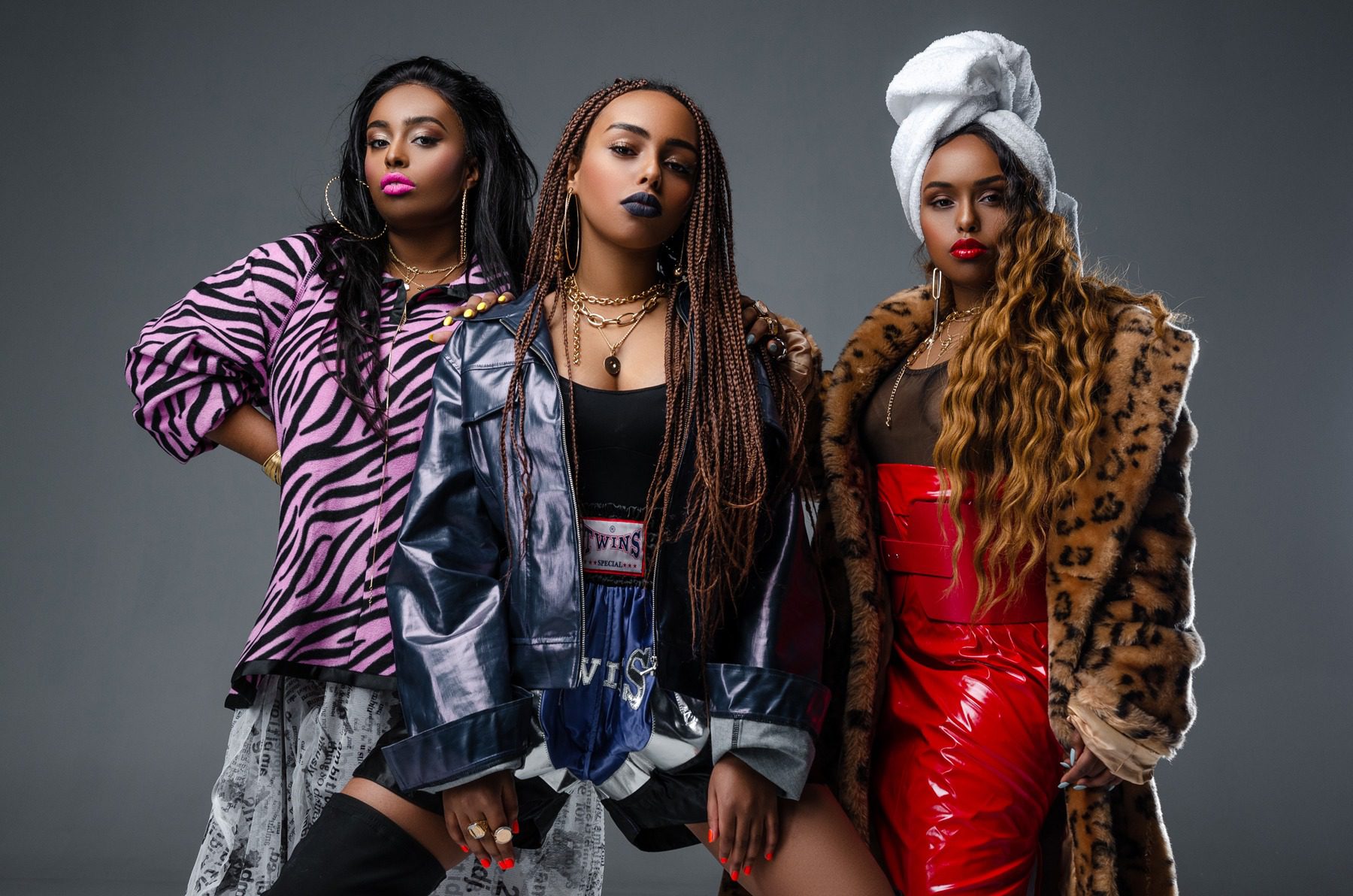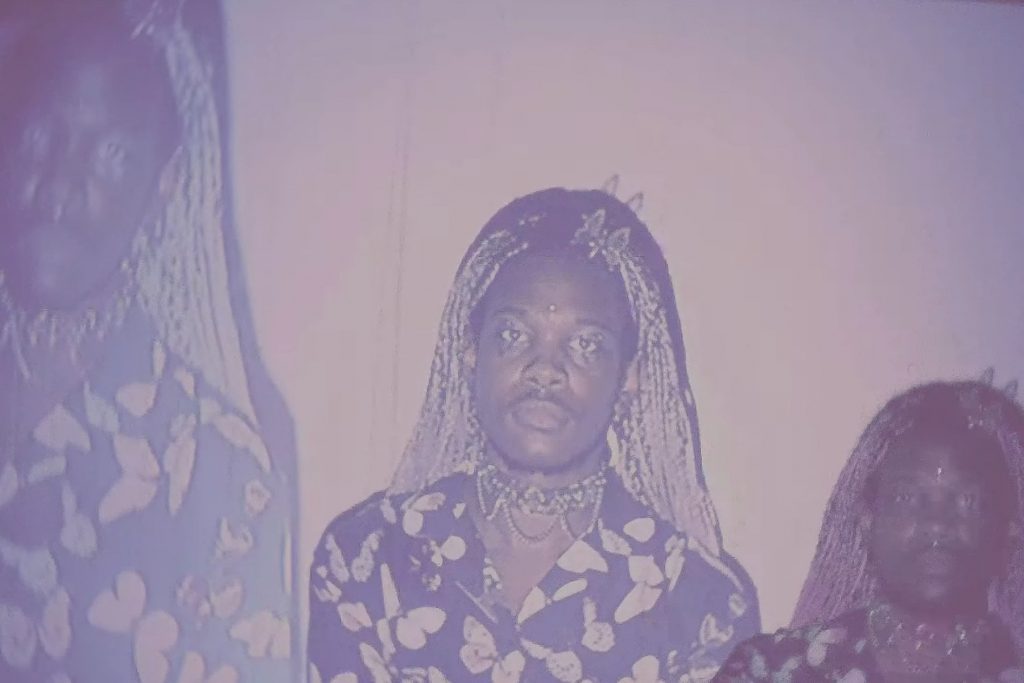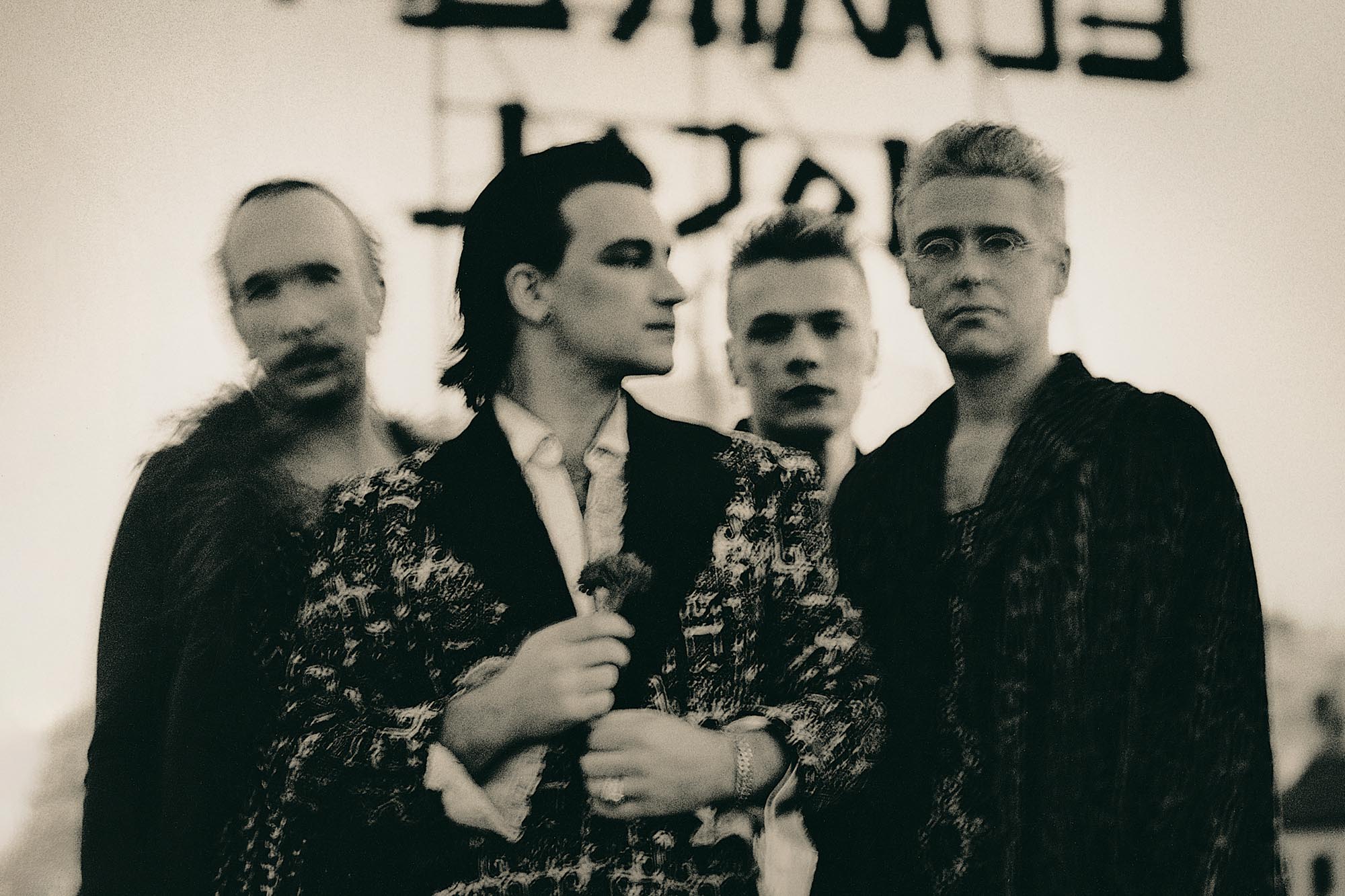
These Three Sisters Helped Bring Hip-Hop to Ukraine. Now They’re Refugees From War
This is not the way the members of Fo Sho thought 2022 would play out. By now, they should have wrapped up their first album, which would expand on the Cardi B–meets-Beyoncé vibe of their first few singles. They would be prepping for a few shows, including one at a European festival, and they’d be trying to figure out which of their original songs to perform in the annual Eurovision contest, where they first appeared in 2020.
Instead, the siblings from Ukraine — Bethlehem (or Betty), Miriam, and Siona Endale — are huddled in a house in Stuttgart, Germany, in sweatshirts and baseball caps. As soon as war broke out with Russia, they fled their homes in Kyiv and Kharkiv and, along with their parents, are now camped out in the home of a kindly woman who has taken them in. The other day they decided to take a class to learn German in case they wind up in that country longer than they first thought. “We went to the group and said, ‘Hi!’ and the people were like, ‘What, you are from Ukraine?’” says Betty, the most fluent in English of the trio, as her sisters sit quietly next to her on a Zoom call. “We said, ‘Yes!’”
blogherads.adq.push(function () {
blogherads
.defineSlot( ‘medrec’, ‘gpt-dsk-tab-article-inbody1-uid0’ )
.setTargeting( ‘pos’, [“mid-article”,”mid”,”in-article1″,”mid-article1″] )
.setSubAdUnitPath(“music//article//inbody1”)
.addSize([[300,250],[620,350],[2,2],[3,3],[2,4],[4,2],[640,250]])
;
});
It’s far from the first time the sisters have felt like outsiders. Even in a country with a diverse music scene that encompasses punk, EDM, troubadours, and hip-hop, Fo Sho stood out: In Betty’s words, they are proudly “Black Jewish Ukrainians” whose parents originally hailed from Ethiopia. Alongside peers like Alyona Alyona and Alina Pash, Fo Sho have injected a female sensibility into the fledgling Ukrainian hip-hop scene. One of their first releases, 2019’s “Xtra,” encouraged the listener to “feel good about yourself,” says Betty, no matter your background. (“I’m just flexin’ my complexion,” they rhymed, “Love or hate me, I keep it real.”) Released in 2020, “BLCK SQR” was named after a painting by the early-20th-century avant-garde artist Kazimir Malevich — who, to the sisters’ dismay, has sometimes been described as Russian-Ukrainian despite being born in Kyiv.
“What we are trying to do is make a message through our music as much as we can,” Betty says. “We don’t talk about how everything is good. We talk about political stuff.”
That stance is rooted in their home country and the way it pulled away from Russia, politically and culturally, after the 2014 revolution. But their message is also steeped in their own, sometimes rattling upbringing. The trio’s parents moved separately from Ethiopia to Ukraine in 1985 and met at medical school; their father went on to become a neurologist, while their mother a veterinarian. The sisters grew up listening to Destiny’s Child, Rihanna, and the Spice Girls, then discovered American hip-hop by way of 2Pac, the Notorious B.I.G., Eminem, and J. Cole.
But as Black kids in a largely white country, they also felt the sting of racism. On her first day of grade school, Siona recalls sitting next to a white classmate who drew a line between them and told her not to cross it. In college, Betty was confronted by a woman who told her to “go back to Miami or Africa.” (“I thought, ‘Miami? Go educate yourself!’” she recalls.)
Fortunately, says Betty, levels of tolerance had shifted dramatically in Ukraine in recent years. “I can’t compare my experience of being 12 to now,” she says. “Ukraine is so much better.”
The sisters went on to professional jobs or studies: Betty, 33, is a dentist; Siona, who will be 20 this month, is a journalism student in college (she also plays classical piano); and Miriam, 24, works in hotel management. They would sing together informally and, inspired by a group photo in which they all looked closer in age than they thought, they decided to form a group three years ago, just as hip-hop was breaking out in their country. “There was no space for hip-hop,” Betty says. “People were still looking at it as something weird. People were still interested in melodies. Hip-hop is about groove and it’s a revolution in taste. We were missing that in Ukrainian culture.”

Katya Bondarenko*
blogherads.adq.push(function () {
blogherads
.defineSlot( ‘medrec’, ‘gpt-dsk-tab-article-inbody2-uid1’ )
.setTargeting( ‘pos’, [“mid-article2″,”mid”,”in-article2″,”mid-article”] )
.setSubAdUnitPath(“music//article//inbody2”)
.addSize([[300,250],[300,251],[620,350],[2,4],[4,2],[3,3],[2,2]])
.setLazyLoadMultiplier(2)
;
});
Soon after, Betty reached out to producer and manager Inna Gissa, who listened to her demos and suggested she and her sisters form a band. “They were exactly what the music market needed,” says Gissa, who also suggested their name. “Sho” (pronounced like “shaw”) is the Ukrainian word for “what?” which lent their moniker a dual meaning: ” ‘Fo Sho’ means 100 percent,” says Betty, “and it’s also a Ukrainian word, so it’s perfect.” Their first single, “Catchy,” came out in 2019, and the following year they performed “BLCK SQR” as one of 16 Ukrainian acts to compete in the 2020 Eurovision contest. (They ended up as semi-finalists.)
After the Eurovision spot, the sisters still encountered people who questioned whether they were actually Ukrainian because of their skin color, and wound up posting about it on their Instagram account: “Since being a Eurovision national team, we are being asked every day whether we are immigrants. Are we foreigners? … We have Ukrainian citizenship since our birth, we have learned English like everyone else, so these questions and comments are very strange to us. If we sound branded … it’s just because we’ve worked so hard and wanted to be world-class.”
Their just-released new single, “U Cry Now,” pushes their music and message in another direction. It’s powered by mosh-pit metal guitars, and its accompanying video incorporates graphic footage of their war-decimated native country. “U Cry Now” was actually written and recorded two years ago. “The melody was coming out and it was so different from everything I did,” says Betty. “We were more trap and hip-hop, but this one we felt should be rock-ish.” When the war started, they realized that the lyrics suddenly applied to what was happening to their country. “It’s exactly about this war!” Betty exclaims. ” ‘If you bite me, I’m gonna bite back.’ It was prophetic.” (Even the way “you cry” and “Ukraine” sound alike was, she says, a coincidence.)
The album that should accompany it is, like their lives, currently on hold. “Right now it doesn’t make sense,” says Betty. “We won’t be able to sing those songs for a long time. They’re not relevant to us now. We need to write something new.”
Likewise, their dream of meeting Tyler, the Creator or Rihanna will have to wait, for however long that may take. “We are way better than when we were in Ukraine, but still we don’t have peace, to be honest with you,” says Betty. “We don’t sleep. We need to do therapy because we have mental-health issues. We are traumatized, especially from hearing the bombs. We still wake up in the night.” Ironically, given their music, she adds, “We’re sensitive to any sound.”




